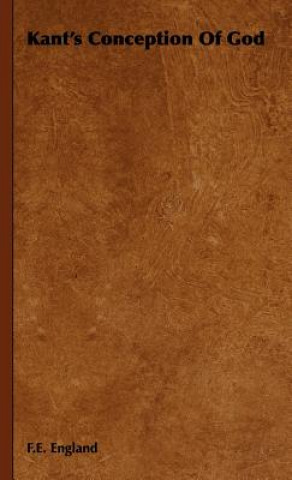
Kod: 03172474
Kant's Conception Of God
Autor F.E. England
KANTS CONCEPTION OF GOD- A CRITICAL EXPOSITION OF ITS METAPHYSICAL DEVELOPMENT TOGETHER WITH A TRANSLATION OF THE NOVA DILUCIDATIO by F. E. England. Originally published in 1929. PREFATORY NOTE: THIS essay is an attempt to follo ... więcej
- Język:
 Angielski
Angielski - Oprawa: Twarda
- Liczba stron: 260
Wydawca: Read Books, 2008
- Więcej informacji o książce

Zobacz książki o podobnej tematyce
-

Jesus in India
103.55 zł -

GEORGE STACEY GIBSON
88.03 zł -14 % -

Johann Sebastian Bach
79.27 zł -23 % -

Circle-valued Morse Theory
1587.82 zł -

Science of Golf
378.36 zł -

I Love You, Blue Kangaroo!
24.57 zł -23 % -

Gift of Light
118.26 zł
Podaruj tę książkę jeszcze dziś
- Zamów książkę i wybierz "Wyślij jako prezent".
- Natychmiast wyślemy Ci bon podarunkowy, który możesz przekazać adresatowi prezentu.
- Książka zostanie wysłana do adresata, a Ty o nic nie musisz się martwić.
Więcej informacji o Kant's Conception Of God
Za ten zakup dostaniesz 134 punkty
 Opis
Opis
KANTS CONCEPTION OF GOD- A CRITICAL EXPOSITION OF ITS METAPHYSICAL DEVELOPMENT TOGETHER WITH A TRANSLATION OF THE NOVA DILUCIDATIO by F. E. England. Originally published in 1929. PREFATORY NOTE: THIS essay is an attempt to follow critically the development of Kants metaphysical thought with special reference to the concept of God, a concept which furnishes a sort of vantage ground from which to -estimate tM6 significance of the changes in Kants philosophical outlook, while itself re maining throughout substantially the same in content. I shall try to show that in his recoil from the speculative metaphysics of the Wolffian school Kant continued to conceive of the universe, after the manner of Leibniz, r as consisting of substances whose reciprocal commercium was made possible through their common origin as essences in the being of God. After tracing briefly the gradual emer gence of those considerations which ultimately led to the critical position, I shall try to show that by viewing epistemology as a species of logic Kant was led to a confused exposition of the critical doctrine of judgment, and in particular of the function of the categories. There upon I shall endeavour to make clear that from the critical premises rightly construed, the subjectivism characteristic of one trend of Kants thought does not follow, and that what has been called his phenomenalism must be seriously qualified. The categories will not, that is to say, evince themselves as constitutive of objects, but as principles of interpretation, and the critical theory of knowledge will not render metaphysics impossible Kant himself declared 3 that the transcendental philosophy had for its object the founding of metaphysics, but prepare the ground for a new meta physics. Turning to the concept of God in the critical period, I shall seek to justify the position that Kants artificial deduction of the Ideal of pure reason and his general Kant was influenced but little by Spinozas philosophy. KANTS CONCEPTION OF GOD formulation of the problem of the unconditioned are really of minor importance, but that there is implied in the critical doctrine as a whole the conception of a necessary ground of the world of experience, that the idea of the unconditioned is logically prior to and involved in the notion of the con ditioned. Further, I shall contend that the purposivcness which admittedly is displayed in the organic realm is unintelligible unless the mechanism of nature be grounded in a supreme intelligence, and that finally the facts of the moral life, and in particular that of moral obligation, presuppose a moral order, and this in turn presupposes a supreme moral Personality as its ground. In conclusion, I shall venture to argue that the Ideas of reason, in so far as they are valid, are not properly described as heuristic fictions, as Kant was prone to describe them, but are at their own level involved in the progressive systematisation of experience. Ideas and categories arc alike metaphysically knowable, and the supreme test of their validity is their indispensability. The Idea of the uncon ditioned is shown by Kant to be indispensably involved in experience, and it was, I shall urge, largely because Kants judgment was influenced by a lingering adherence to the formalism of Wolffs logical school and to the crude psy chology of his clay that his transcendentalism was not ex tended over the entire field of experience, and the Idea of the unconditioned was not accepted as a valid metaphysical principle...
 Szczegóły książki
Szczegóły książki
Kategoria Książki po angielsku Humanities Philosophy
230.38 zł
- Pełny tytuł: Kant's Conception Of God
- Autor: F.E. England
- Język:
 Angielski
Angielski - Oprawa: Twarda
- Liczba stron: 260
- EAN: 9781443724043
- ISBN: 9781443724043
- ID: 03172474
- Wydawca: Read Books
- Waga: 480 g
- Wymiary: 216 × 140 × 19 mm
- Data wydania: 04. November 2008
Ulubione w innej kategorii
-

Thus Spoke Zarathustra - The Philosophy Classic
56.60 zł -23 % -

From Bacteria to Bach and Back
55.09 zł -

Men Among the Ruins
105.56 zł -4 % -
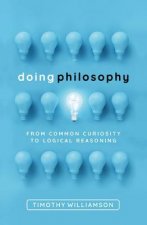
Doing Philosophy
82.60 zł -4 % -
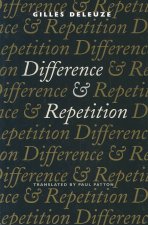
Difference and Repetition
111.91 zł -7 % -

The Conspiracy Against the Human Race
71.92 zł -13 % -
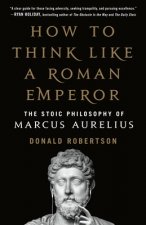
How to Think Like a Roman Emperor
77.76 zł -5 % -

Teachings of Don Juan
46.33 zł -12 % -
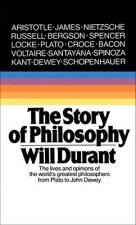
The Story of Philosophy
44.11 zł -4 % -

I am That
175.27 zł -
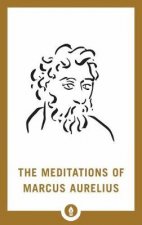
Meditations of Marcus Aurelius
47.34 zł -23 % -

Monkey Business
73.63 zł -15 % -
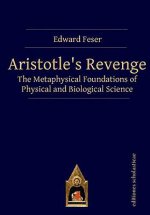
Aristotles Revenge
127.93 zł -
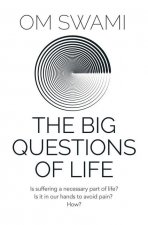
Big Questions of Life
62.15 zł -

Musonius Rufus
71.41 zł -
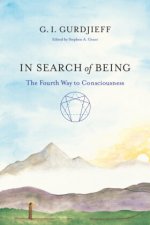
In Search of Being
110.90 zł -11 % -

Nature
35.35 zł -3 % -
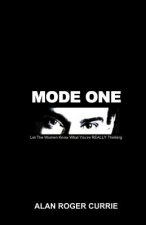
Mode One
122.89 zł -
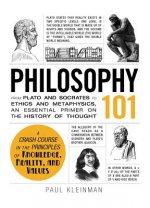
Philosophy 101
69.90 zł -10 % -

Nomadology - The War Machine
58.52 zł -10 % -
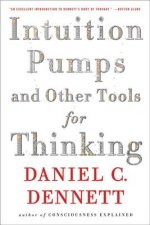
Intuition Pumps and Other Tools for Thinking
92.37 zł -7 % -

From Intellect to Intuition
61.94 zł -

Omnibus Homo Sacer
476.08 zł -

Mystery of Evil
91.16 zł -

Daily Reflections
24.17 zł -23 % -

Return to the One
77.79 zł -

Desire/Love
94.58 zł -

Nuclear Physics
77.56 zł -5 % -

Western Philosophy: An Anthology, 3rd Edition
204.59 zł -

Built to Last
70.20 zł -14 % -
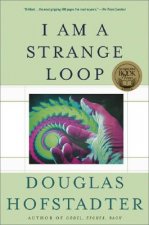
I Am a Strange Loop
86.73 zł -12 % -
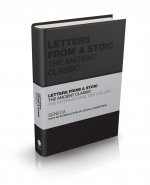
Letters from a Stoic - The Ancient Classic
60.94 zł -13 % -

The Essential Philosophical Works
24.57 zł -23 % -

How the World Thinks
51.97 zł -23 % -
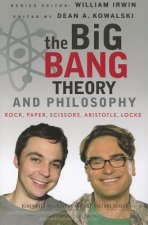
Big Bang Theory and Philosophy - Rock, Paper, Scissors, Aristotle, Locke
96.30 zł -

Wisdom of Yoga
71.92 zł -13 % -

Breaking Bad and Philosophy
109.39 zł -5 % -

Sacred Dance Meditations
103.55 zł -10 % -

Hyperculture: Culture and Globalisation
75.74 zł -

Escape from Evil
93.68 zł -
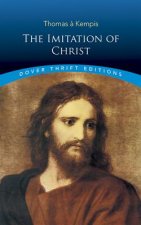
Imitation of Christ
20.04 zł -23 % -

Machiavelli: The Art of Teaching People What to Fear
71.92 zł -13 % -

Religion of Tomorrow
137.19 zł -11 % -

Calendar of Wisdom
108.48 zł -13 % -
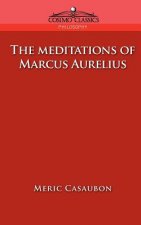
Meditations of Marcus Aurelius
60.03 zł -

Mortal Questions
89.75 zł -4 % -
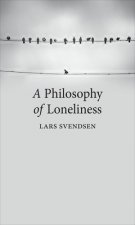
Philosophy of Loneliness
91.66 zł -

Oxford Companion to Philosophy
150.39 zł -23 % -

Contingency, Irony, and Solidarity
133.77 zł -4 %
zadowolonych klientów
Od roku 2008 obsłużyliśmy wielu miłośników książek, ale dla nas każdy był tym wyjątkowym.
Copyright! ©2008-24 libristo.pl Wszelkie prawa zastrzeżonePrywatnieCookies



 21 milionów książek
21 milionów książek Dostawa 10.99 zł
Dostawa 10.99 zł (32) 444 93 66 (8-15.30h)
(32) 444 93 66 (8-15.30h)